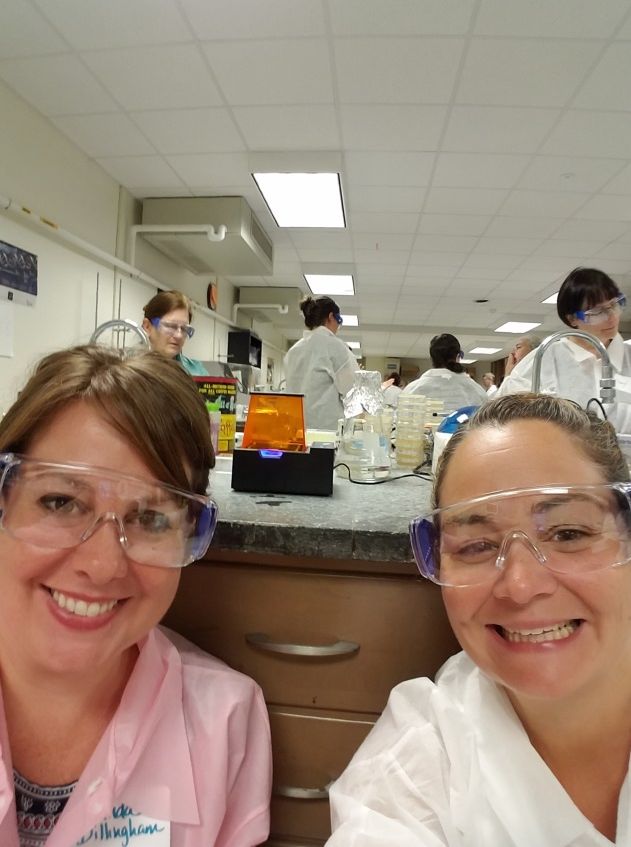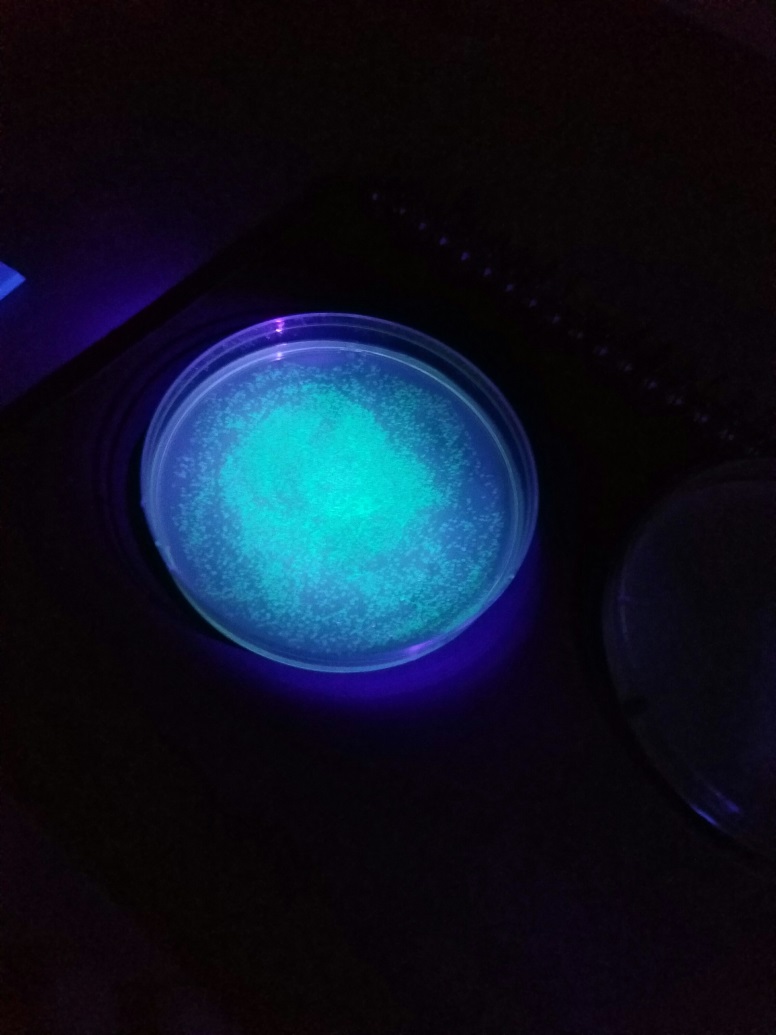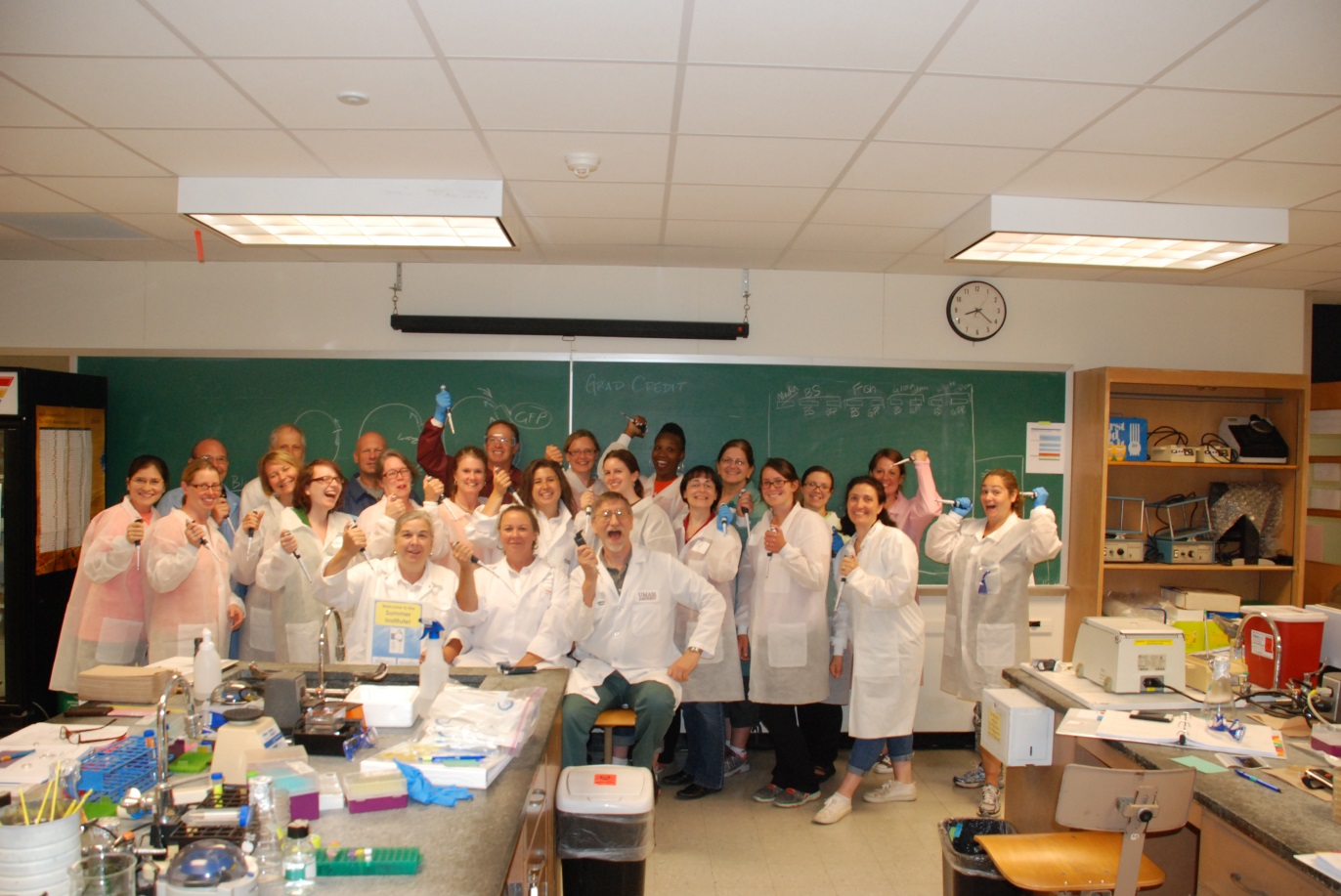We just wrapped up an incredible week-long intensive summer training program called the “Summer Institute”. We had 20 high school teachers from across Massachusetts join us at UMass Amherst to hone basic biotechnology skills and techniques. Our goal was to increase biotechnology content knowledge and to provide resources to ensure that the teachers incorporate new and inquiry-based activities into their classrooms the following year.
This program was completely free for our teachers; all participants received a week’s worth of accommodations, meals, and a daily stipend. Everyone also had the opportunity to earn professional development points and for a small fee, they could also earn graduate credit.
We started each day drawing in participants at 8 am with coffee and bagels and some days, we were still in the lab as late as 9:30 pm. The multi-day, residential nature of this program allowed our BioTeach team, made of experienced scientists and teachers, to have one-on-one time with teachers to explain the ins and outs of incorporating labs into their curriculum and to revitalize their enthusiasm for teaching. Not only did our team get to interact with the teachers, but the teachers also had the opportunity to collaborate with one another. Check out lab partners Amanda Dillingham, East Boston High School, and Amy Camire, Swampscott High School, taking a selfie with their classroom sized gel electrophoresis unit!

Throughout the week, we worked through five major inquiry-based learning labs. These labs were far from your standard “cook book labs”.
- Redesigning Bacteria: we transformed bacterial cells with pSNAP, giving them resistance to the antibiotic ampicillin.
- Molecular Scissors: as a spin off from AP lab #6, we digested Lambda with EcoR1 and HindIII.
- Mission Impossible: our mission was to determine the identity of two plasmids using one or more available restriction enzymes.
- The Taster Lab: we used our own cheek cell DNA to determine our genotype for the PTC taster alleles.
- The Cloning Project: from start to finish we created a plasmid that was then inserted into bacteria and gave the bacteria a new characteristic– the ability to glow.

After reviewing the evaluations, I am not surprised to say that one hundred percent of the teachers who attended the Summer Institute said they would recommend this program to their peers. Having just joined MassBioEd earlier this summer, this was my first Summer Institute and I just have to say, it was an absolute blast. The instruction that teachers gain from attending the Summer Institute carries far and wide across Massachusetts and lays the groundwork for a long standing, education community. These teachers will inspire generations of students and I can’t wait to see what they’ll do next.

If you’re interested in learning more about our programs and what we can offer high school teachers, please check out our website: www.massbioed.org or reach out to me at amanda.hayden@massbio.org.
Cheers!